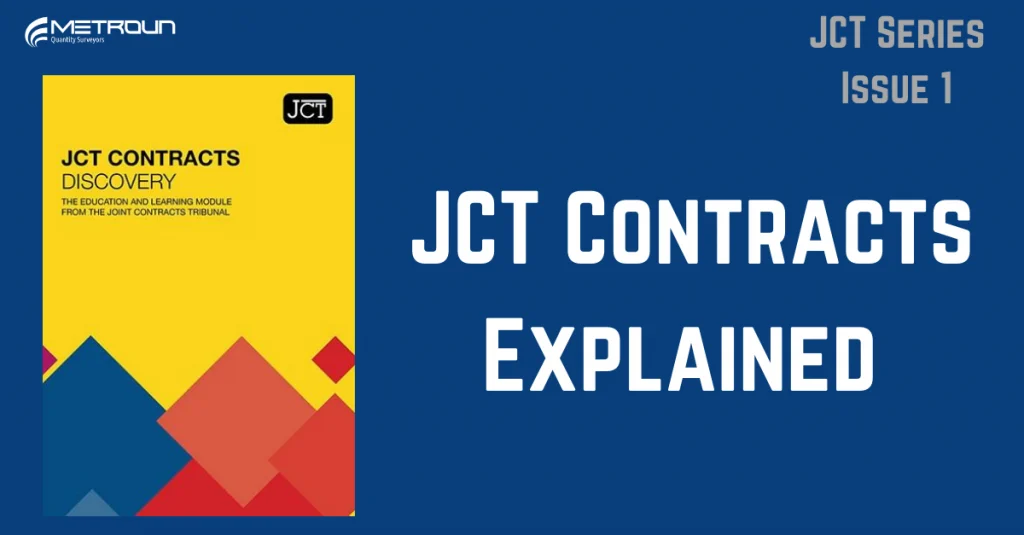The joint contracts tribunal provides suites of standard forms of procurement processes and main contracts in construction. The first JCT standard form of contract was created in 1931, although these forms were not named JCT until 1977. The 2016 edition is the most current. JCT contracts are the most widely used in the UK construction industry.

The procurement process needs clients and contractors to be aware of their roles and obligations, so that they use the right standard forms and contracts to mitigate risks for all involved.
The JCT suite recognises three main procurement processes;
- Traditional
- Design and Build
- Management
Traditional, which is still the most-commonly used method, is where the design and construction elements are provided sequentially by different organisations. The client first appoints consultants to design the project in detail and then prepare tender documentation, including drawings, work schedules and bills of quantities. Contractors are then invited to submit tenders for the construction of the project, usually on a single-stage, competitive basis. The contractor is not responsible for the design, other than temporary works, although some traditional contracts do provide for the contractor to design specific parts of the works.
Design & Build procurements have a single main contractor appointed to deliver all elements. The contractor is responsible for the design, planning, organisation, control and construction of the works to the employer’s requirements
In Management procurement the main contractor is paid a fee for defining and managing the construction process. The management contractor is appointed by the employer to oversee the completion of the works. This involves issuing instructions, preparing certifications, administering contract conditions, and so on.
The choice of procurement will consider a range of factors, such as whether the project is a new build or refurbishment, or if the project needs specialist construction skills.
There are 8 JCT main contracts
– Lump Sum
– Measurement
– Cost Reimbursement
– Design & build
– Management contract
– Partnering contract
– Pre-Construction services agreement
– Consultancy Agreement
There are variants to the eight main contracts. The JCT has recognised the complexity of this variety of options and published a flowchart to help clients decide which contract is the best fit for them. A JCT contract and the relevant suite of standard forms are consistent documents. If a client or even contractors introduce bespoke amendments to the forms, then the balance of risks, the integrity and even the legality of the contract is compromised.
Here at Metroun, we help businesses manage and understand JCT contracts, ensuring you have the knowledge and skills to properly manage your construction project contractually.






2 Responses